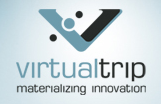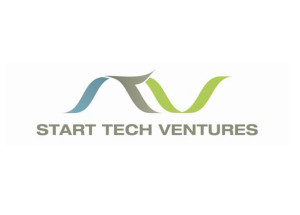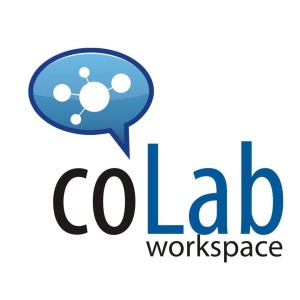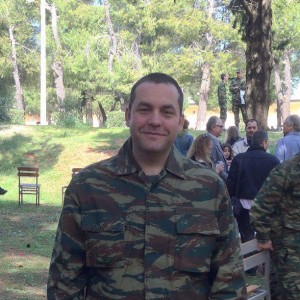Thoughts of a European serial start-up entrepreneur before going to the Silicon Valley
The Greek experience, the Silicon Paranoia and the need for a European start-up growth model
I launched my first start-up, along with four more co-founders (Periklis Akritidis, Nikos Ventouras, Miltos Vassilakis and Charalampos Gikas – one of them had the following email address: “JFK at VTRIP dot NET”) and Critical Publics on September 5th 2000, exactly 13 years ago. Being at the age of 22, I had 9 courses left to complete my Computer Science degree by that time. When Virtual Trip was founded, it was all about doing “what they do in the US” and “why not doing the same in Crete, Greece” since “we can”.
To put simply, we did it because we could do it. We also did it because we loved doing it. Nothing could motivate us more than responding successfully to challenges. In this context, the challenge of “establishing and running a company” was the greatest one we could ever imagine.
The MoU with Critical Publics was crystal-clear: During the first 12 months they would assign us web development subcontracts of $150,000 at a person-month rate of $3,000. I know that it doesn’t sound as a great deal. However for the five of us, all undergraduate students of computer science, $3,000 was an amount able to cover our personal costs not only for one month but for a couple of quarters. In other words, it was looking as an amazingly high monthly income.
Nothing went as planned, of course. The contracts assigned were not at the amount of $150,000 but “only” $120.000. Also, the corresponding period finally was 15 months, instead of 12. Last, we learned the very hard was what overhead in running a business is as well as that in our lovely country we had to pay “advance payment for next FY taxes” equal to 80% of our first FY corporate tax. But at the end of the day, going strictly according to plans spoils all the fun.
We did have fun, really great fun, enough to make us overcome barriers, one after the other. We also had the privilege to work with a dozen of the largest customers that we could ever get in Greece – as subcontractors to Critical Publics most of the times.
Then the crisis started. The Greek IT market has been in crisis long before the national economy. It actually never recovered the Greek stock-market bubble explosion in 2002. In 2003 we got a velvet divorce with Critical Publics and then shortly after that I got one more velvet divorce with my co-founders. I will ever be grateful to my vtrip co-founders and to Critical Publics for making this journey happen. Without them, vtrip would not be here. Being super frank however, I have to say that I never had a single second thought in my decision to move forward, even when I was left completely alone, sometime in Q2/2003.
Going global has been in our mind from the very beginning. That was thanks to Critical Publics strategy. Our web sites and marketing material was in English-only. Working language was English. We knew that scaling of our business could only happen with international projects. We even worked in international projects, a streaming video portal in Turkey (!), as early as in December 2000.
However, we soon realized a very important aspect of international business in our sector: Going global requires products. Services do not scale. So, in 2003 we started thinking of the products that would take us around the Globe. On the other hand, in order to create products you need to work for a significant amount of time without having any revenues, thus you need investment. Being practically impossible to raise risk capital in Greece in 2003, the concept behind our “entrepreneurial ecosystem” was born as a response to an extreme necessity.
Trying in learning is second to none. Knowledge is hidden in failure. We’ve failed repeatedly and notoriously. Fortunately, that has made us learn a lot and, guess what, we’re still alive. Numerous mistakes have been made, none of them was proven fatal. From the “IT Center” stores to the “StudyBox” portal, we’ve lost hundreds of thousands of dollars in our corporate venturing projects as well as terrible amounts of time and energy. However, knowledge gained from those ventures let us succeed in others, like eFront e-Learning and AbZorba Games.
The Silicon Valley model is about failing fast. I don’t believe in failing fast, hence I don’t believe in the Silicon Valley model. Failing fast basically means many things. First of all, it means that there’s practically unlimited investment capital around. There’s nothing unlimited on Earth however, besides humans stupidity. This discussion about “unlimited” investment capacity reminds me of the “unsinkable Titanic”, now resting at the bottom of the Atlantic. Second, failing fast means that the entrepreneur is somewhat disconnected from the fate of her/his own creation. Third and most important, it is similar to being in the lab and running from one experiment to the other without giving the time to study the results. What is the meaning of doing many experiments if you don’t devote the time necessary to learn our of the results of each one of them?
The approach was simple: We invest in teams already working in our organization, committed to work together in a specific sector (i.e. mobile apps & services) and ready to take as many iterations as necessary till success finally arrive. Appropriate re-adjustments will of course take place in each & every iteration, since more knowledge will be uncovered in each round. The path from high-quality mobile video streaming over GPRS networks in 2005 to mobile social games in 2011 may sound awkward; however it’s nothing but the real story behind one of our greatest successes so far.
Our journey has been anything but easy. We leveraged earnings from services business, subsidies and debt financing to fund ten different corporate ventures. The overhead behind this operation was proven tremendously high. Imagine that we had created a services team of 60 people just for funding an R&D team of 12. In this context we’ve delivered some of the most complex and demanding software engineering projects ever taken place in Greece, like the passport issuing system. However, as the VC industry practically did not exist in 2003 in Greece, we had no other choice – not taking our chances, not moving forward, has never been considered as an option.
Guess what: It seems to be working. Despite confirming the law of project management in that everything will take more time and cost larger amount than planned, we have made it. We have managed to fund ten companies, have already two start performers and four more companies with reasonably good chances. We have also created an incubator to support all those independent companies, we keep running our first services business, which also serves as a preferred beta tester of our companies new products, as well as we have invested in a leading co-working space for having premium access to new teams and fresh ideas. Of course, there’s one last step still missing: Either to exit from a venture or to somehow realize the return on the investment. We can reasonably hope that this moment is not far away and certainly claiming that is not the reason for being called “criminally optimistic” by me colleagues.
An archaic piece of legislation in Greece makes military services compulsory. Military service duration has been recently significantly reduced to nine (9) months, only. Yes, you’ve read correctly, it’s 9 months. When Virtual Trip was established, it used to be 21. Obviously I couldn’t leave my company and go to the army. When my studying-extension expired on Dec 31st 2005, I could not renew my passport any more, which in turn meant no traveling out of the Schengen-treaty area. Those 8 years felt like centuries. When turning 35 you have the option to serve 45 days only and then pay a fine for the pending 7.5 months. This is what I did this year. From March 21st to May 7th I served as a Signal Soldier in the Hellenic Army – Land Forces. On May 8th I applied for my passport and got it few days later. At last, the road was open.
I love basketball, like most Greeks do. I have dreamt of a basketball game that never took place – and unfortunately never will – between the original USA “dream team” and the unified Yugoslavia team – yes, that unprecedented, unique, superb team of Petrovic, Kukoc, Danilovic, Radja and Divac. I know that in this fictional game the “dream team” would probably still win, however that amazing Yugoslavian team was the only one on Earth who could play against them with real winning chances. Unfortunately, geopolitical decisions before the 1992 Barcelona Olympics did not let this game happen, leaving a bitter taste to the European basketball fans.
In a similar way, having launched my first start-up at the age of 22 and being a serial entrepreneur and investor ever since, I’m about to go to the Silicon Valley and speak to a great event, CloudBeat 2013 by VentureBeat discussing “Learning Gets Cloud Powered”, feeling like a 36 years old European basketball player going to the NBA for a tournament of friendly games. “You work double for achieving half, because of the numerous barriers and obstacles”, a mentor from the USA had told me, “and that’s quite amazing”.
Two weeks ago I was informed that one of our AbZorba Games titles topped the USA Apple Store in the “social casino” games, being No4 in card games and No75 in games. Moreover, it’s even more excited that today AbZorba Games will break the threshold of 2 millions downloads, most of them in the US. This is a small victory for our Athens-based team, a small victory of huge importance though. A proof of concept that being No1 in the World, even in a relatively narrow space such as social casino games, is possible indeed – without having to be physically in the Silicon Valley nor having received tons of capital from institutional investors. Who knows, Yugoslavia may had some real chances to make a great surprise!
Hersonissos is a popular tourist destination in the island of Crete, Greece, almost 30 km from the city of Heraklion where Virtual Trip was created. I remember going there in the late 90s and seen a fast-food called “McDelis”, having exactly the same colors and similar logo to the famous international brand “McDonald’s”. I remember that first it looked ridiculous and then it made me feel sad. Life is too short for not being authentic, for having a copied identity. Cretan Mediterranean diet is supposed to be one of the healthiest in the World, if not the healthiest. How does it make sense to be in the food business in Crete and prefer copying McDonald’s instead of creating your own, authentic brand, taking advantage of the Region’s symbolic capital? It absolutely makes no sense at all, likewise it makes no sense to try to become the “Silicon Valley of Europe” like many European Regions claim to be. They simply follow the “McDelis” way.
I’m going to the Silicon Valley on Sunday aiming to listen, to meet interesting people, to make new friends and to learn. I dream of building bridges between the Silicon Valley and Europe. I dream of a bidirectional flow of people, ideas, companies and capital. My vision is neither creating one more “Silicon Valley of Europe” nor of course to migrate to the Silicon Valley. My vision is to help in creating a European innovation ecosystem to be a proper peer to the Silicon Valley innovation ecosystem, positioned more to complement than to compete with it.
Some important steps to this direction have already been made in London and Berlin. However, both of those cities have to realize the need for authenticity in the ecosystems they grow. Simply because authenticity is valuable and irreplaceable, because at the end of the day Europe does deserve and authentic start-up growth model.
The European start-up growth model should be all about sustainability. Sustainability in terms of financing, in terms of expectations and in terms of sector focus. Moreover, we have to make sure that start-up growth does return to the society, preserving the European quality of life as well as it does not lead to overconcentration of wealth, securing a well balanced society.
My first visit to the USA will have a duration of 28 days. Going there 13 years after starting – and still running – Virtual Trip feels just great. Being proud of what we’ve already achieved, I go there aiming to use our competitive advantage to the maximum: Learn fast, learn well. Last, I will always remember that Toni Kukoc was charismatic because of being better in passing than in scoring. So, I will try to do the same.






